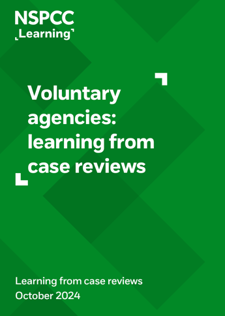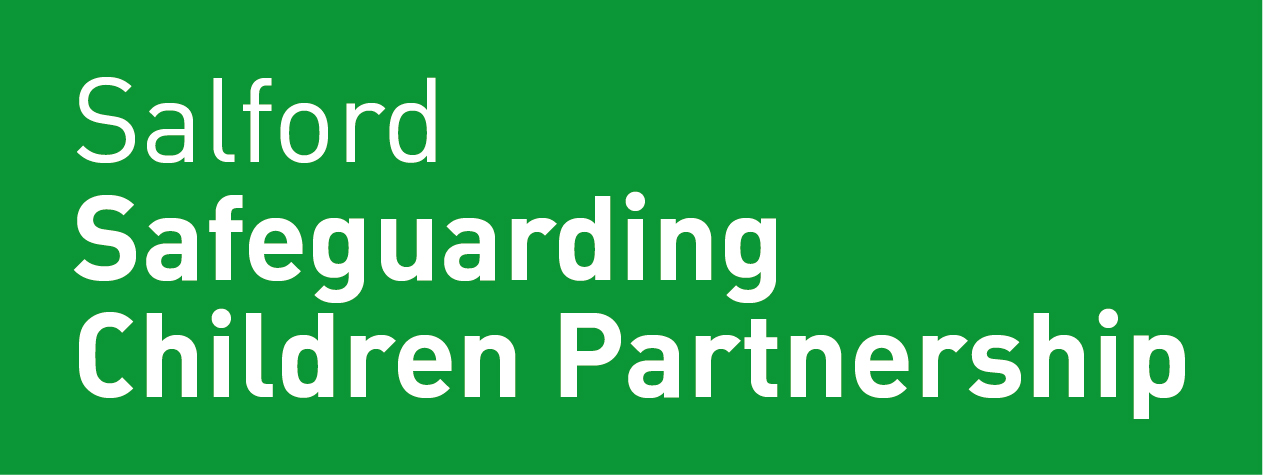January 2025
Previous news items are available by month of publication from the news tab.
Salford Safeguarding Children Partnership circulate monthly E-Bulletins; if you would like to be included on the distribution list, email sscp@salford.gov.uk.
Multi Agency Safeguarding Arrangements update
We have updated the Multi Agency Safeguarding Children Arrangements. In this document we outline our statutory duty for joint and equal responsibility for the multi-agency safeguarding of Salford’s Children.
This includes:
- Keeping children and young people safe in Salford
- Working together to keep children and young people safe in Salford
- Placing learning and improvement at the centre of our shared work
- Keeping a focus on understanding the impact of our work on the outcomes for local children and young people.
As safeguarding partners, we recognise the importance of understanding how our arrangements relate to the work of other local partnerships and the wider governance framework. This is set out within the document, together with our arrangements for independent scrutiny of our work, which we very much welcome.
Together, we refer to our multi- agency safeguarding arrangements as the “Salford Safeguarding Children Partnership” (SSCP).
Safeguarding in Housing
February brings the launch of the new safeguarding in housing webpages which have been designed to provide safeguarding information in the context of housing for our partners, professionals and the public including;
- The role of housing in safeguarding
- Safeguarding and housing in Salford
- Local Authority safeguarding teams
- Salford City Council Housing Services and safeguarding
- Registered Providers and safeguarding
- Privately rented sector and safeguarding
- Information for partners and professionals (Housing Awareness Pack / list of useful resources)
The information and resources are designed to help in identifying and responding to safeguarding issues where you may need assistance from a housing provider or services, however People & Communities Safeguarding Team are here to help if you’re unsure who to contact in housing with your queries or for more complex case discussions.
The offer of attending team meetings/inputs to promote these new web pages if this would be useful, please get in touch peoplecommunitiessafeguarding@salford.gov.uk (please allow 3 working days for a response)
GM Safeguarding Children Procedures update
The multi-agency combined Greater Manchester Safeguarding Children Procedures are updated twice a year in June and December. This month amendments have been made to several policies including Online Safety, and Modern Slavery, Trafficking and Exploitation. Click on this link to see the most recent updates in December 2024: https://greatermanchesterscp.trixonline.co.uk/amendments. If you wish to be alerted to any changes to the GM Procedures you can click on the Register for Updates button on the homepage. If you are aware of any GM Policy or local pathway guidance that needs to be updated please contact sscp@salford.gov.uk.
Multi-agency Working and Information Sharing
NSPCC Learning has published a suite of resources exploring how safeguarding professionals can successfully work together and share information within and between agencies. The resources include: an evidence snapshot summarising findings from research published between 2014 and 2023 about multi-agency working and information sharing in children’s social work; a series of practice points designed to help social workers focus on the actions that support good multi-agency working and information sharing; and three expert insight films. The resources highlight the importance of multi-agency working and information sharing in achieving the best outcomes for children and their families.
Read the evidence snapshot: Effective multi-agency working and information sharing: evidence snapshot
Read the practice points: What helps to support effective multi-agency working and information sharing?
Watch the films: Multi-agency working and information sharing: expert insights
Prioritising Child Sexual Abuse: Call to Action
"Victims and survivors of intra-familial child sexual abuse can and do recover from their abuse, especially when supported by professionals who are trained to best support them and their families" (CSA Centre)
The SSCP has created a CSA repository of training, resources and information in response to feedback from Salford professionals . We are calling for your action to ensure all practitioners, managers and leaders access and share this resource Child Sexual Abuse | Salford Safeguarding Children Partnership across your workforce and with children, young people, parents/carers and community members.
I wanted them all to notice: Protecting children and responding to child sexual abuse within the family environment
Call to action:
- Apply for a place on the GM Child Sexual Abuse Conference on 6th March 2025. For more information on the conference see GM CSA Conference Flyer and apply for a place by completing this form Prioritising child sexual abuse: Online event with the CSA Centre
- Attend a range of training sessions promoted by the SSCP throughout the year available Child Sexual Abuse page
- Read the Child Safeguarding Practice Review Panel Newsletter - Special Edition Nov 2024 including the practitioner briefing and the report "National Review into Child Sexual Abuse within the Family Environment"
- Access the CSA Centre’s free eLearning course (or equivalent) on identifying and responding to intra-familial child sexual abuse, which takes just 90 minutes to complete and consists of three engaging modules, with interactive tasks, video explainers and a final assessment. It is designed for professionals at all stages of their career; for those new to safeguarding, or as a helpful refresher.
- Listen to the NSPCC podcast How to plan meaningful participation work with victims and survivors of child sexual abuse (CSA) | NSPCC Learning
- Reflect on discussions about improving responses to child sexual abuse using supervision and team meetings
- Visit the Child Sexual Abuse page for more training and information. For continued improvement and provision of resources please complete the short survey with your feedback and recommendations – this will support us to evidence impact and build a confident and skilled workforce.
Serious Child Safeguarding Incidents
The Child Safeguarding Practice Review Panel has published its fifth annual report which covers the period of 1 April 2023 to 31 March 2024. The report aims to share evidence and learning from our national oversight of rapid reviews and Local Child Safeguarding Practice Reviews (LCSPRs), as well as the Panel’s reviews of national issues. In addition to key data about the children and their families who are the focus of reviews, three themes are spotlighted in this year’s annual report:
- Safeguarding children with mental health needs
- Safeguarding pre-school children with parents with mental health needs
- Extrafamilial harm
The learning can inform the practice and policies of strategic leaders, managers and those working directly with children, young people and families. We have also considered the role of strategic leaders and the organisational conditions that will best enable and sustain the embedding of recommendations that will drive long-term change. The report includes key findings, more detailed messages, learning points and reflective questions. You can also read the press release ‘Mission-led’ government must centre vulnerable children - GOV.UK
The Child Safeguarding Practice Review Panel is hosting virtual webinars to cascade the key messages from the annual report and it's National Review into Child Sexual Abuse within the Family Environment". These 1-hour online events will include an overview of the key learning and local recommendations for safeguarding partners. Each event will focus on a different ‘spotlight’ theme in order to facilitate discussion and generate feedback on each topic.
Webinar: Child Sexual Abuse within the Family Environment Tickets, Wed 15 Jan 2025 at 12:00 hosted by The Child Safeguarding Practice Review Panel.
Wednesday 12 February 2025, 12.00 to 13.00 Webinar: Annual Report 2023 to 2024 (mental health focus) Tickets, Wed 12 Feb 2025 at 12:00 | Eventbrite This webinar will cover safeguarding children with mental health needs and safeguarding pre-school children with parents with mental health needs.
Wednesday 19 February 2025, 12.00 to 13.00 Webinar: Annual Report 2023 to 2024 (extra-familial harm focus) Tickets, Wed 19 Feb 2025 at 12:00 | Eventbrite This webinar will cover extra-familial harm (safeguarding children from risks outside of the home)
The webinars are on MS Teams and participants will be sent joining instructions and a full agenda via email from the Panel Mailbox one week before the event.
7 minute Briefings
The SSCP produces 7 minute briefings to offer insights from case reviews and themed learning, along with challenge questions for agencies, teams, and individuals to reflect on and consider in their practice. The briefings can be used in a variety of ways:

- Individuals can use the briefing independently for their own learning and development and share with others.
- Teams/Managers encourage circulation and use for information and development and share learning amongst their team i.e. team meetings, supervision, peer support to reflect and improve practice and systems.
- Use at a structured event during training development sessions to complement overall learning and development
New and updated 7 Minute Briefings include;
- Adultification - New
- Baby Harvesting
- Beds in Sheds Rogue Landlords
- Corporate Parenting Principles
- Escalation and Professional Challenge
- Equality Act
- Good Lives Model - New
- Making a good referral - New
- Parental Mental Health - New
- Think Family - New
Developing Professional Curiosity

In partnership with the Salford Safeguarding Adults Board (SSAB) we have produced some joint webpages with information on professional curiosity which contains links to various resources including a short animation. Please take some time to look at these resources and share them with your teams / colleagues. They are still being developed so if you have any comments or suggestions, please let us know by emailing michelle.hulme@salford.gov.uk or shahanara.begum@salford.gov.uk
Think Family
A number of reviews have highlighted the need for professionals to adopt a ‘Think Family’ approach to working with families. Please read the 7-Minute Briefing or plain text version including the Think Child - Think Adult - Think Family Guidance and please share and discuss it with your teams. Both documents can be found on the new joint Think Family webpages.
Parental Mental Health
Earlier this year the SSCP co-ordinated a multi-agency QA Panel which invited practitioners from a range of different agencies to come together and discuss how they work with children whose parents experience poor mental health. The aim of the panel was to highlight and share good practice and look for ways to improve how we support those families across the multi-agency system. Discussions on the day highlighted that in Salford there is a good range of support services available for families, with evidence of good multi-agency working by practitioners who know children and families well and appear to understand the impact of parental mental ill-health on the child. Some of the learning from the day identified that the role of the Mental Health Advocate could potentially be better utilised in Salford to support parents, in addition to the SSCP Think Child guidance. As a result of the QA Panel further multi-agency Parental Mental Health awareness training will be developed and a new SSCP 7 Minute Briefing has been published. If you would like a copy of the full report from the QA Panel please contact sscp@salford.gov.uk.
Don't forget to visit Parental Mental Health for more information and resources.
Kooth are also hosting webinars for professionals AND parents/carers and young people aiming to provide you tips to support young people and their mental health including tools that have been designed to teach helpful empowering techniques to young people. To book your places click here; https://linktr.ee/KoothEngagementTeam.
National/Local Updates and Learning
Keeping Children Safe in Education
The government’s recently published policy paper Keeping children safe, helping families thrive DfE November 2024 sets out important measures to strengthen the role of education within multi-agency safeguarding arrangements. The policy paper contains important information about proposed legislative changes to the child safeguarding system. This is important for senior leaders and professionals across all agencies. Reforms include,
- Legislative change to strengthen the role of education within multi-agency safeguarding partnerships.
- Creating local registers of children in elective home education and a new duty on parents where, if their child is subject to a child protection enquiry, or on a child protection plan, they will need local authority consent to home educate that child.
- Improving the accountability and oversight of providers of multiple residential children’s homes.
- Introducing a Single Unique Identifier (which has also been referred to in the past as a ‘consistent child identifier’) to bring together data on children’s interactions with different services.
- Improving data sharing by introducing a new duty that provides absolute clarity on the legal basis to share information for the purposes of safeguarding children.
'Parental Alienation'
The Family Justice Council (FJC) has published guidance for Family judiciary, and those working in the Family Justice System, on responding to allegations of alienating behaviour.
The guidance, which is titled ‘Guidance on responding to a child’s unexplained reluctance, resistance or refusal to spend time with a parent and allegations of alienating behaviour‘, follows one of the largest consultations in the FJC’s history, with nearly 100 responses from individuals and stakeholders.
In summary, the guidance:
- debunks myths that there is a diagnosable ‘syndrome’ of parental alienation and provides a helpful guide of important steps to follow where a child is reluctant, resistant, or refusing to see a parent.
- is a reminder that decisions of fact relating both to allegations of alienating behaviour or domestic abuse are a judicial function.
- tackles the difficult issue of allegations of alienating behaviour being made alongside allegations of domestic abuse, the impact on survivors and the importance of unpicking the complex interplay between these issues.
- centralises the voice of the child, putting children back at the heart of cases concerning them.
In the foreword to the guidance, the President of the Family Division of England and Wales, and Chair of the Family Justice Council, Sir Andrew MacFarlane, said: “The issue of parental alienation/alienating behaviours is a polarising one which has taken up much court time and public debate. The guidance note reflects the complexity and challenges of this area of family law. It has been long awaited.
“I approved this workstream for the Family Justice Council knowing how divisive this topic has become. In my view this guidance is required to ensure greater consistency of approach across the courts and to improve outcomes for children and families and to protect children and victims from litigation abuse. It has my endorsement and I encourage everyone working within the family justice system to read it carefully.
Child Sexual Abuse
I wanted them all to notice: Protecting children and responding to child sexual abuse within the family environment
The Child Safeguarding Practice Review Panel has released their latest report, titled "National Review into Child Sexual Abuse within the Family Environment." The report highlights that safeguarding agencies lacked the necessary skills and support to effectively listen to, understand, and protect children from severe abuse. It urges the government to swiftly implement a national action plan to safeguard and support children at risk.
You can also read the Child Safeguarding Practice Review Panel Newsletter - Special Edition Nov 2024 which includes a practitioner briefing and a Webinar: Child Sexual Abuse within the Family Environment Tickets, Wed 15 Jan 2025 at 12:00
Keeping children safe, helping families thrive
Keeping children safe, helping families thrive outlines the government’s commitment to keeping families together and children safe.
It also outlines a commitment to support children to live in family settings where children cannot remain at home, including through kinship or foster care, rather than residential care.
Alongside this, the statement sets out ambitions to fix the broken care market, and ensure the system is working effectively for vulnerable children and families.
Safeguarding children with disabilities and complex health needs in residential settings
Read the Child Safeguarding Practice Review Panel’s phase 2 report on Safeguarding children with disabilities and complex health needs in residential settings.
Serious Youth Violence: Multi-agency response
Findings from 6 joint targeted area inspections focused on how local partnerships of children’s social care, health services, schools, the police and youth justice services work together to respond to serious youth violence. Inspectors tracked the experiences of hundreds of children across England and spoke to many families affected by serious youth violence.
Read the press release on Serious youth violence more far-reaching than many realise - GOV.UK and the report on ‘Multi-agency responses to serious youth violence: working together to support and protect children’
Children with complex needs that are deprived of their liberty
Restricting liberty is one of the most significant interventions the state can make into a child’s life. A deprivation of liberty order may include authorisation for children to be supervised at all times, prevented from leaving their accommodation at will, denied phone and internet access, and restrained by professionals when this is deemed necessary. Although these children are living in the community, they are often, by virtue of their restrictions, extremely isolated, and largely hidden from view.
The experiences shared by children in this report illustrate the impact of living with a deprivation of liberty order. From the report it is clear that, before this measure is considered, children with complex situations and trauma should receive targeted, individualised support and services, at an early stage, to prevent an escalation of risk wherever possible. Read the report by Children's Commissioner including the recommendations Children with complex needs who are deprived of liberty: Interviews with children to understand their experiences of being deprived of their liberty | Children's Commissioner for England
Voluntary agencies: Learning from case reviews

This briefing focuses on findings from published case reviews which specifically relate to voluntary and community sector organisations.
Case reviews often mention the vital support voluntary agencies provide to children and families facing adversities. However, there is sometimes a lack of clarity about voluntary agencies’ roles and responsibilities for child protection and safeguarding.
The learning from these reviews highlights that organisations in the voluntary sector need to:
- have clear child protection policies and procedures
- work closely with other agencies to keep children safe and respond to concerns
In Salford we have a thriving and diverse Voluntary, Community and Social Enterprise sector. Salford CVS is the city-wide infrastructure organisation for the voluntary, community and social enterprise sector; providing specialist information, advice, development support and opportunities for influence and collaboration. For further information visit: Home | Salford CVS
Right Care Right Person

Right Care, Right Person (RCRP) is a new approach to dealing with calls to the police from people with issues to which policing is not always the best agency to help. This could be where there are concerns for a person’s welfare linked to such issues as mental health, medical or social care needs where a police response isn’t always appropriate.
This new approach is about getting the right person with the right skills, training and experience to provide the best support for that individual.
Now with the new launch of RCRP, the police call handler will signpost callers to other more suited agencies where appropriate. Here in Greater Manchester, this could be Greater Manchester Mental Health, North West Ambulance Service or a service in their local authority. This approach will enable police officers to have more time to fight, prevent and reduce crime, harm, and anti-social behaviour; investigate and solve crime, and keep people and communities safe.
Get the right care from the right person
Self Care: Trauma Responsive Workforce
Whatever you have planned following the holiday period, try and make time to pause, reflect and take care of yourself.
Alongside support, supervision and services available to us in our organisations to support you and your colleagues, you should also prioritise taking better care of yourself and pay attention to what you need.
The following information and resources have been identified to support the wellbeing of our people and

teams in the workplace including how we look after ourselves.
- Self care resources | Partners in Salford
- Stress - Every Mind Matters - NHS (www.nhs.uk)
- Managing stress and building resilience - tips - Mind
- Greater Manchester Resilience Hub - health and care staff wellbeing service
- Greater Manchester Wellbeing Toolkit | Greater Manchester Integrated Care Partnership
- Togetherall
- Six Degrees Social Enterprise – Supporting Your Mental Health (six-degrees.org.uk)
- Meditation and Sleep Made Simple - Headspace
- Trauma Responsive Greater Manchester (trgm.co.uk)
Information and learning on a variety of subject matters related to safeguarding children and adults, can also be accessed through the SSCP Training Programme, 7 minute briefings, learning from Practice Reviews and the SSCP YouTube Channel.
All enquiries concerning the welfare or safety of a child or requests for information MUST BE SENT DIRECTLY to the Bridge Partnership.
The Bridge Partnership can be contacted on 0161 603 4500. All referrals and requests for support must be completed on the online referral form. The Bridge Partnership is available Monday to Friday 8.30am - 4.30pm. If you need to speak to someone outside these times, please contact the Emergency Duty Team (EDT) on 0161 794 8888. If a child is in immediate danger of being harmed or is home alone, call the police on 999.
If you are worried about an adult - Report abuse or neglect by telephone on: 0161 206 0604. For further information visit the Safeguarding adults page on the Salford City Council website.
Latest news
Details of all the latest news from the Salford Safeguarding Children Partnership.


